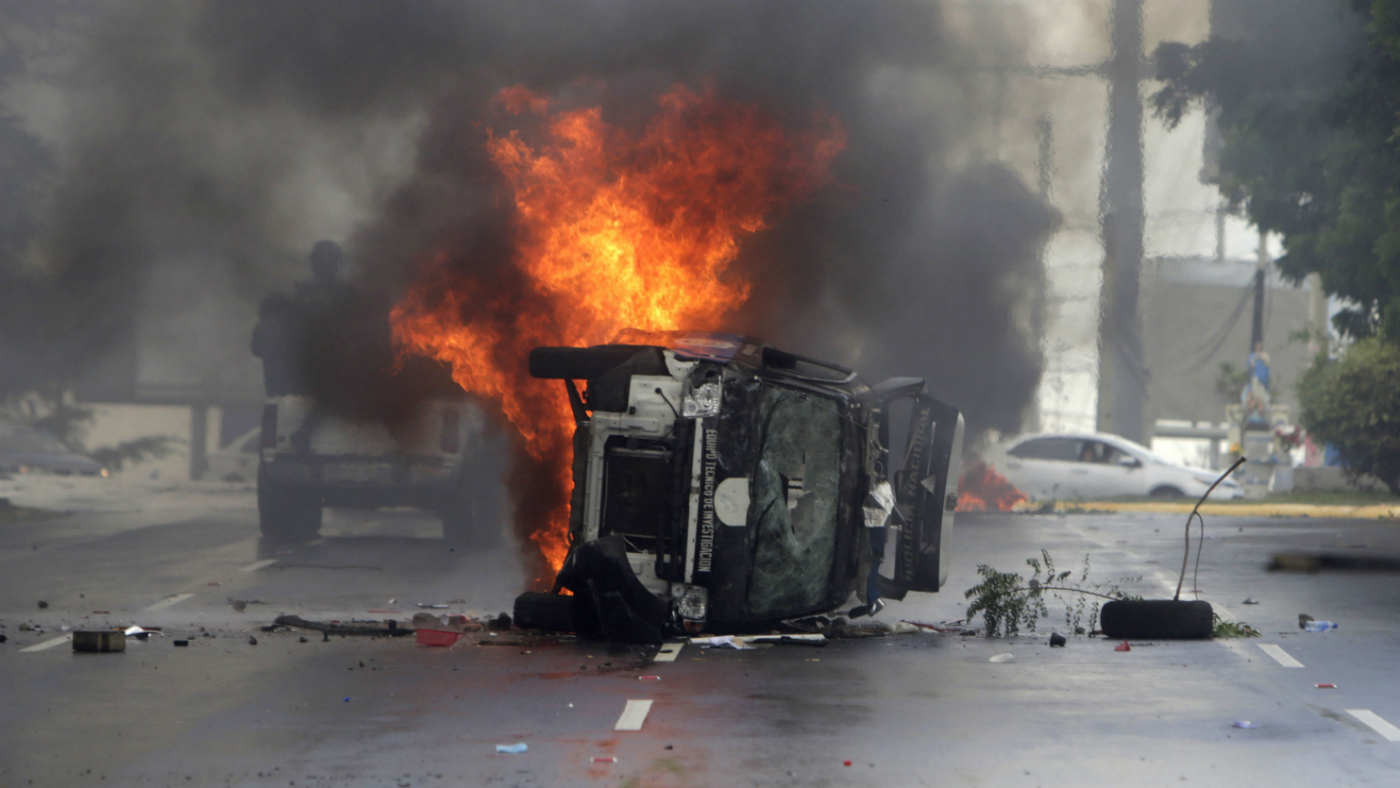Is Nicaragua the new Syria?
Nikki Haley warns that Central American nation is travelling ‘down the same path’ to civil war

A free daily email with the biggest news stories of the day – and the best features from TheWeek.com
You are now subscribed
Your newsletter sign-up was successful
The US ambassador to the United Nations has warned the organisation’s Security Council that Nicaragua is travelling “further down” the same path that led to a brutal civil war in Syria.
Nikki Haley, the current council president, said that the UN must intervene to halt Nicaraguan President Daniel Ortega’s “tyranny from threatening peace and security” in the region.
“With each passing day Nicaragua travels further down a familiar path,” she said during a meeting on Wednesday.
The Week
Escape your echo chamber. Get the facts behind the news, plus analysis from multiple perspectives.

Sign up for The Week's Free Newsletters
From our morning news briefing to a weekly Good News Newsletter, get the best of The Week delivered directly to your inbox.
From our morning news briefing to a weekly Good News Newsletter, get the best of The Week delivered directly to your inbox.
“It is a path that Syria has taken. It is a path that Venezuela has taken,” Haley added, alluding to the ongoing social crisis and violence in the latter country.
More than 300 Nicaraguans have been killed since April, after peaceful protests over government welfare cuts were violently suppressed by security forces.
Foreign Affairs argues that there are clear similarities with events in Syria, where civil war broke out after a popular uprising against President Bashar al-Assad was met with brutal repression.
“Police and paramilitaries arbitrarily detain citizens every day,” says the US-based news magazine of the Ortega regime. “They are tortured, accused of terrorism, organised crime, illegal possession of weapons, and a litany of other crimes.
A free daily email with the biggest news stories of the day – and the best features from TheWeek.com
“Hooded, heavily armed irregular forces roam the streets, shooting at will. After 6pm, most cities in the country look deserted. The Nicaraguan government, much as it did under [former dictator Anastasio] Somoza, has declared war on its people.”
However, the International Peace Institute’s Global Observatory argues that unlike the Syrian regime, the Nicaraguan government does not have sufficient power to avoid being overthrown.
“Even if [Ortega] temporarily silences dissenters, the bases of his dominion have been dramatically and irrevocably shaken,” the site says. “What remains to be seen is how his regime will fall. One can only hope that democracy in Nicaragua will be restored by the instruments of an ‘electoral’ rather than an armed revolution.”
The numbers don’t support Haley’s comparison either. The death toll in Nicaragua, around 300 people over the past five months, is dwarfed by that in Syria at the same stage in that conflict, estimated to be more than 2,000 by international organisations.
Haley also claimed that “when human rights are denied, the violence and instability that follow spill over borders”.
On this point, the US ambassador appears to be correct. At the UN meeting, the representative for Costa Rica, which borders Nicaragua to the south, claimed that his country had seen 12,830 requests for asylum from Nicaragua since April - which he described as a “significant increase” on previous years.
But as Reuters points out, this number “pales in comparison with war-ravaged Syria’s estimated 5.5 million refugees, a number almost equivalent to the entire population of Nicaragua”.
-
 Quentin Deranque: a student’s death energizes the French far right
Quentin Deranque: a student’s death energizes the French far rightIN THE SPOTLIGHT Reactions to the violent killing of an ultra-conservative activist offer a glimpse at the culture wars roiling France ahead of next year’s elections.
-
 Secured vs. unsecured loans: how do they differ and which is better?
Secured vs. unsecured loans: how do they differ and which is better?the explainer They are distinguished by the level of risk and the inclusion of collateral
-
 ‘States that set ambitious climate targets are already feeling the tension’
‘States that set ambitious climate targets are already feeling the tension’Instant Opinion Opinion, comment and editorials of the day
-
 Will increasing tensions with Iran boil over into war?
Will increasing tensions with Iran boil over into war?Today’s Big Question President Donald Trump has recently been threatening the country
-
 Epstein files topple law CEO, roil UK government
Epstein files topple law CEO, roil UK governmentSpeed Read Peter Mandelson, Britain’s former ambassador to the US, is caught up in the scandal
-
 Iran and US prepare to meet after skirmishes
Iran and US prepare to meet after skirmishesSpeed Read The incident comes amid heightened tensions in the Middle East
-
 Which way will Trump go on Iran?
Which way will Trump go on Iran?Today’s Big Question Diplomatic talks set to be held in Turkey on Friday, but failure to reach an agreement could have ‘terrible’ global ramifications
-
 Syria’s Kurds: abandoned by their US ally
Syria’s Kurds: abandoned by their US allyTalking Point Ahmed al-Sharaa’s lightning offensive against Syrian Kurdistan belies his promise to respect the country’s ethnic minorities
-
 Israel retrieves final hostage’s body from Gaza
Israel retrieves final hostage’s body from GazaSpeed Read The 24-year-old police officer was killed during the initial Hamas attack
-
 China’s Xi targets top general in growing purge
China’s Xi targets top general in growing purgeSpeed Read Zhang Youxia is being investigated over ‘grave violations’ of the law
-
 Syria’s Islamic State problem
Syria’s Islamic State problemIn The Spotlight Fragile security in prison camps leads to escape of IS fighters